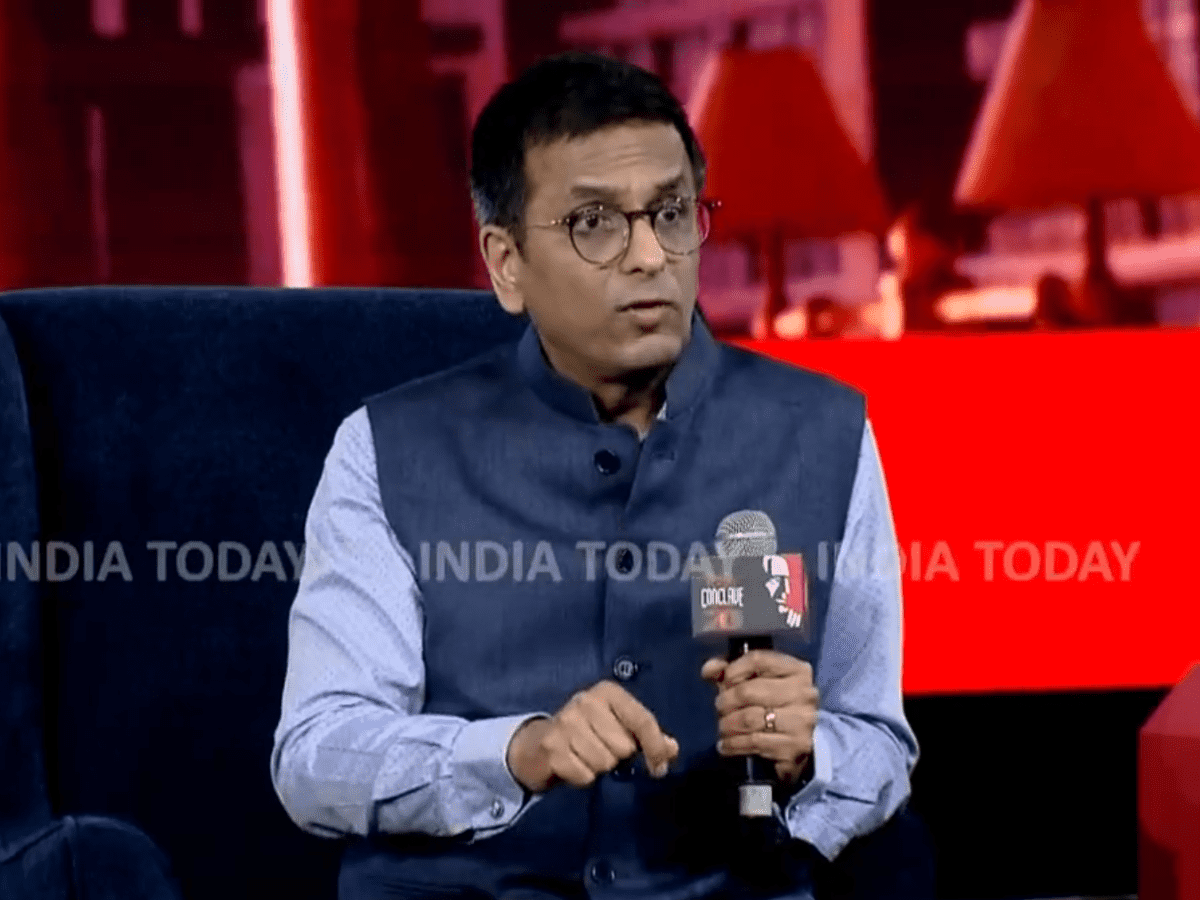
Srinagar: Chief Justice of India D Y Chandrachud on Friday said very little is known about the work done in the back offices of the Indian judiciary and stressed that it is important this be highlighted.
He was delivering the inaugural address of the 19th Legal Services authority Meet at the Sher-i-Kashmir International Convention Centre (SKICC) here.
“Judiciary has been a poor communicator just because we feel that we don’t need marketing,” the Chief Justice of India (CJI) said.
“It is also known by the delays in judicial process, very little is known about the work done in the back offices of the Indian judiciary, and it is important we highlight the work which is done in the back offices of the Indian judiciary as well because that is the spine of our judiciary,” he said.
CJI Chandrachud said a judiciary is known by the decisions it delivers or sometimes by the decisions that it doesn’t deliver.
He also talked about the voluminous work being done at the back-end of courts.
The website, which is the central functioning site of the e-court services, recorded 2.54 billion transactions in 2020, 3.20 billion transactions in 2021, 3.26 billion transactions in 2022 and over 1.3 billion transactions up to June 27 this year, he said.
“The e-court services have reached to 13.9 billion transactions since the inauguration of the website in March 2013. In this year alone, 63.8 million text messages were sent to citizens as part of our e-court services at a rate of 3.60 lakh per day. More than 15 million downloads have taken place of our app this year. We have automated e-mailing services and up to June 27, 61.3 million mails have been sent to litigants across India,” the CJI said.
These are the figures of the work that is going on in the Indian judiciary, which is never noticed, he said.
“When people talk about delays in the judicial process. I think it is important that we market ourselves for the nation to know the kind of work that is being done, to understand the seriousness with which common citizens’ problems are attended to,” CJI Chandrachud said.
He said the National Lok Adalat has disposed of 3.6 crore cases this year so far. “The ADR mechanisms play an important role in access to justice,” the CJI said.
CJI Chandrachud said, “To the large number of high court chief justices, I must emphasise the need for us to re-engineer our rules. Our rules were designed when summons were served on horsebacks and camels.”
“Those rules are not relevant for the times in which we live. We have to re-engineer our rules in the form of civil manuals and criminal manuals, make them more relevant to our times,” he said.
The CJI also said there were many reasons for distrust in the legal services of the country. “One of the reasons for distrust is the complex judicial process and judicial delay. The legal services authorities should encourage people to look for alternative dispute resolution mechanisms,” he said.
He said the Legal Services Authorities Act, 1987, has sought to humanise the law and promote social justice through delivery of legal aid and legal service.
“It simplified our laws. It enjoins the police, jails and courts to become more responsive to the needs of the poor and vulnerable and it institutionalised the Lok Adalats,” he said.
“We are a unique country. Out of 1.4 billion people, 80 per cent of the population in India is entitled to free legal aid. These are daunting figures. However, only a miniscule percentage of the population utilises the legal aid. According to a study in 2022, less than eight per cent undertrial prisoners utilised legal aid,” he said.
The CJI said underutilisation of legal aid services was largely due to three factors. Lack of awareness about legal aid, the difficulty in accessing legal aid and services and the lack of confidence in state legal aid services, he said.
He also recommended that more women and transgenders should engage as lawyers and paralegal volunteers in legal aid services to enhance confidence of women and transgenders in these institutions.



